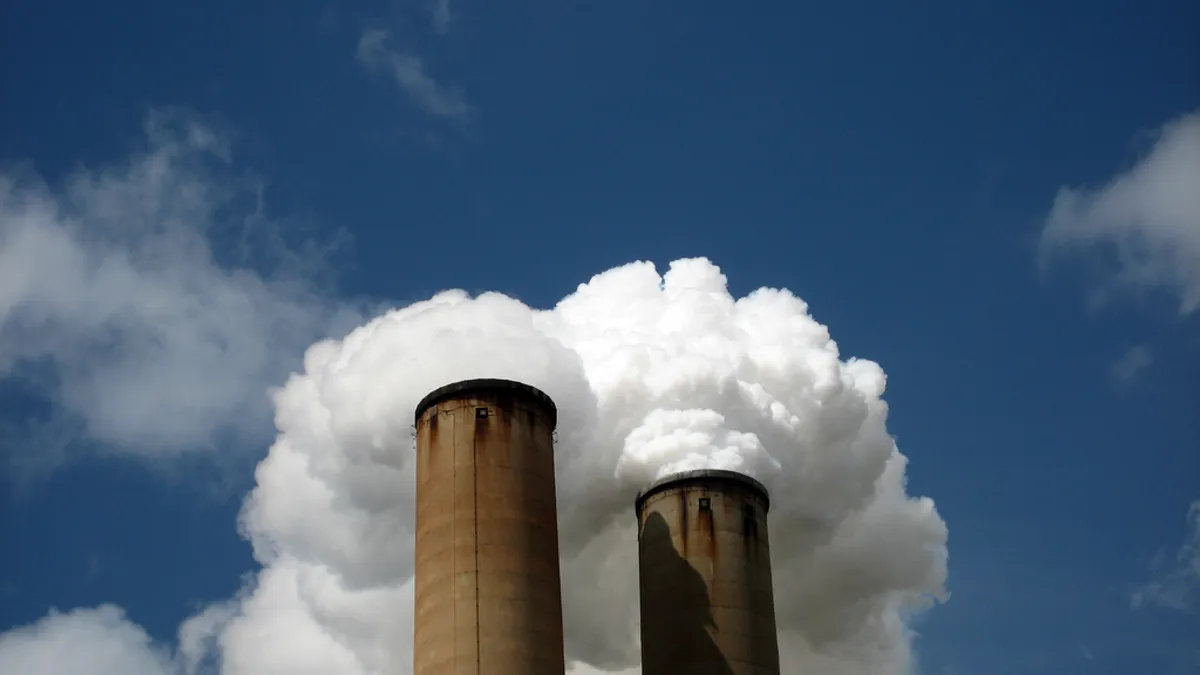Dive Brief
- Greenhouse gas emissions from the United States have fallen below 1994 levels, the result of a steady decline since the recession. The most recent declines stem in part from mild weather, lower energy demand and fuel shifting, according to a draft report from the U.S. Environmental Protection Agency.
- The report, titled "Inventory of U.S. Greenhouse Gas Emissions and Sinks," looks at data from 1990 to 2015 and is prepared annually to comply with United Nations climate change programs.
- President Trump has promised to reverse regulations and limitations that have helped reduce pollution, and it is not clear how the new administration intends to approach the international Paris climate accord reached in 2015.
Dive Insight:
Year-to-year changes in greenhouse gas emissions are the result of a wide range of factors, but the overall trend since 2007 has shown a decline. Declines in 2015 were largely the result of a mild winter that spurred lower energy consumption, according to the EPA's report released this week.
"Changes in CO2 emissions from fossil fuel combustion are influenced by many long-term and short-term factors," EPA explained. "In the short term, the overall consumption of fossil fuels in the United States fluctuates primarily in response to changes in general economic conditions, energy prices, weather, and the availability of non-fossil alternatives."
According to the EPA report, 2015 emissions declined to 6,586.2 million metric tons. Total U.S. emissions have increased by 3.4% from 1990 to 2015, but emissions decreased from 2014 to 2015 by 2.2%. Among the drivers were mild weather, lower power demand and fuel switching away from coal and toward cheap natural gas.
Climate Central reports that while the Trump administration promised additional vetting of EPA data releases, the report does not appear politicized in any way.
While President Trump has promised to end restrictive regulations on domestic energy production, it is so far unclear how this will play out on the world stage. Trump has vowed to abandon the United Nation's Paris agreement and has said climate change is a hoax, but Secretary of State and former Exxon CEO Rex Tillerson has said the United States should remain a part of the accord to "maintain its seat at the table.¨
Correction: This post has been updated to remove a sentence saying the EPA did not include methane leaks from oil and gas facilities in the report. Such emissions are counted in Production Field Operations and Crude Oil Transportation categories of the report.















